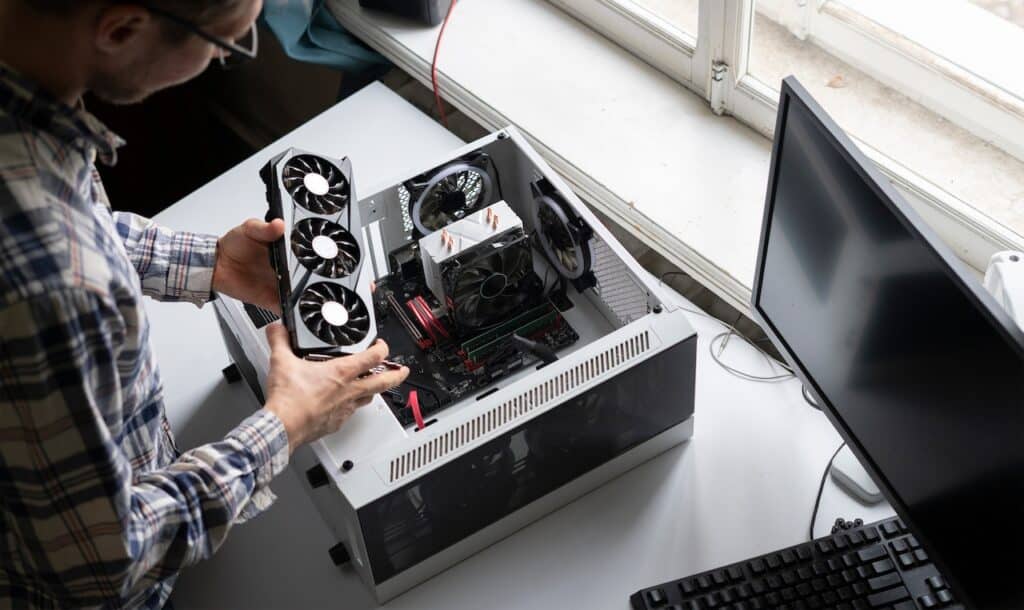Artificial Intelligence (AI) has rapidly made its way from the pages of science fiction to the heart of business strategy for small business owners and IT professionals alike. Industries are leveraging AI for everything from customer service chatbots to complex data analysis and predictive maintenance. But as AI becomes more common, you might be asking: “Do I need to upgrade my hardware to get the most out of AI?”
Whether you’re looking into AI for the first time or aiming to maximize the capabilities of your existing system with AI hardware, this guide will provide the insights you need to make informed decisions about your AI infrastructure.
The Core Components of AI Infrastructure
The AI ecosystem is made up of layers of hardware and software that work together to deliver AI functionalities. Understanding these components is crucial for gauging the potential need for hardware upgrades.
AI Hardware
The hardware on which AI operates is specialized for AI tasks. Graphics Processing Units (GPUs) and Tensor Processing Units (TPUs) are primary examples of AI-specific hardware designed to handle the intensive computing requirements of AI.
GPUs excel at parallel processing, making them ideal for deep learning, while TPUs are fine-tuned to accelerate machine learning workloads, particularly those that involve neural networks.
Additionally, Field Programmable Gate Arrays (FPGAs) and Application-Specific Integrated Circuits (ASICs) are becoming more commonplace in AI hardware, each with its own niche in optimizing AI performance.
These specialized hardware components are not always a must-have for basic AI tasks, but they become essential as the complexity and scale of AI operations grow.
AI Software
AI software encompasses a broad spectrum of tools, ranging from AI and machine learning libraries like TensorFlow and PyTorch to higher-level AI platforms and applications. The software layer is where AI algorithms and models are implemented, trained, and executed.
Algorithms are the instructions that specify the logic for learning and data modeling, while frameworks like TensorFlow provide the structure and functionality to develop these algorithms into working AI solutions. No matter the sophistication of the hardware, the quality of the outputs is hugely dependent on the software used in AI systems.
The Hardware-Software Connection in AI
The performance of AI systems heavily depends on the integration of hardware and software. High-end hardware can yield minimal returns without the sophisticated software to utilize it effectively, and conversely, advanced algorithms can be bottlenecked by underpowered hardware.
Assessing Your Current AI Infrastructure
Evaluating your existing infrastructure is the first step to gauging whether a hardware upgrade is necessary for AI integration.
Checklist for Evaluating Hardware Capabilities
When assessing your hardware, consider the following:
- Can your current hardware handle the data volume required by AI tasks?
- Is there adequate RAM to support the data processing needs of AI algorithms?
- Are the existing processors capable of the parallel processing demanded by AI operations?
- Does your system have the ability to scale resources as AI workloads increase?
Benchmarking AI Performance
Conducting performance benchmarks on your current hardware using AI workloads is a practical way to gather data on its capabilities. Keep in mind that benchmarking shouldn’t just be a one-time task; it’s an ongoing process that should be revisited as your AI needs evolve and new technologies emerge.
Software Optimization Before AI Hardware Upgrades
In many cases, poor AI performance may not be a hardware problem but a software efficiency issue. Before investing in new hardware, explore whether your AI software can be optimized for better performance. Simple adjustments like software updates, algorithm fine-tuning, or more effective scaling strategies can often enhance AI system performance.
Exploring Software-Based AI Solutions
For small businesses and startups, hardware upgrades are a major financial decision. Fortunately, many AI tasks can be achieved with software-only solutions, at least in the initial stages of AI implementation.
Cloud-Based AI Platforms and Services
Leveraging cloud-based AI services from providers such as Amazon Web Services (AWS), Google Cloud, or Microsoft Azure can offer powerful AI capabilities without the need for dedicated AI hardware. These platforms often provide a wide range of AI tools and services that are scalable and billed according to usage, making them particularly attractive for small to midsize businesses.
Implementation Considerations for Software-Based AI
While software-based solutions can be more cost-effective, they also come with considerations such as data privacy, security, and the potential for increased latency. A thorough assessment of your business’s needs and the capabilities of various software-based AI solutions is crucial before making a decision.
Advantages and Limitations of Software-Only AI Approaches
The primary advantage of software-based AI is its accessibility and lower initial investment. On the other hand, there are limitations for performance and real-time response, particularly with high-throughput processing tasks. Understanding these trade-offs is essential in selecting the right approach for your AI needs.
Cost-Benefit Analysis of Hardware Upgrades
If you know you’ll be using advanced AI systems, such as deep learning or natural language processing, upgrading to dedicated AI hardware may be necessary.
Analyzing Potential Return on Investment (ROI)
Assess the potential ROI of a hardware upgrade by estimating the costs against the expected benefits. This involves projecting the increased efficiency, reduced processing times, and improved accuracy that the new hardware may bring to your AI operations.
Alternative Solutions and Cost-Saving Measures
Before committing to an AI hardware upgrade, explore alternative solutions and cost-saving measures. This might include revisiting your AI algorithms, considering more efficient software, or reevaluating your data management strategies.
So, Do You Need a Hardware Upgrade?
AI’s integration into your business does not always necessitate a hardware overhaul. Investing in AI-specific hardware should be a strategic decision rooted in the specific needs and goals of your business.
If you’re unsure about whether to upgrade your hardware, reach out to a tech and hardware expert, like Trinware, to discuss your options and find the best solution for your AI infrastructure.
We can help you assess the ROI and feasibility of different hardware and software options, ensuring that your business gets the most out of AI without breaking the bank. Schedule a consultation with us to get started!




